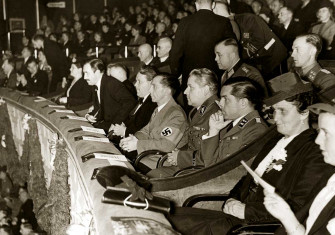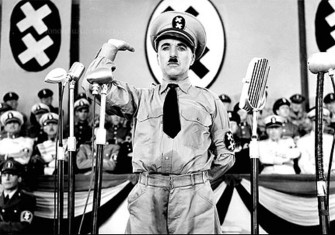Triumph of the Will
Brian Winston casts a critical eye over Leni Riefenstahl's cinematic paean to Nazi aesthetics.
In the canon of great films, the place of Triumph of the Will , a documentary about the sixth Nazi Party Congress of 1934 directed by Leni Riefenstahl, seems to be impregnable. For received opinion, the film is, in Susan Sontag's words, 'the most successfully, most purely propagandistic film ever made'.
Yet this is more than a little curious, for the film lives, outside of neo-fascist circles, only as a species of awful warnings against fascism. It is not regarded as a persuasive text – unlike say, the silent, Soviet film, Battleship Potemkin , which Nazi propaganda chief Joseph Goebbels himself thought 'a marvellous film without equal in the cinema ... anyone who had no firm political conviction could become a Bolshevik after seeing the film'. Even in the 1930s, few claims were made that Triumph of the Will would do the same for fascism. In fact, political scientist and film historian Richard Taylor states that 'the film was not used generally for propaganda purposes' in Germany at the time.







